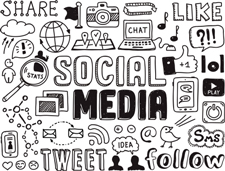“Networking” is a word many professionals throw around regularly, but how often do we take it seriously? In the fast-paced world of healthcare, it can be easy to overlook the benefits of networking ? but it’s as critical in this field as any other, and possibly even more so. Let’s take a look at why, followed by some practical tips so health care professionals can get the most out of their networking experiences.
Why Is Networking Important in Health Care?
Sometimes, high-level decision-making requires us to branch out from our usual cohort and seek guidance elsewhere. This is one of the most powerful benefits of networking: the broadening of your horizons and the deepening of the well of experience you can draw from. The truth is, great ideas can come from anywhere ? but we need to put ourselves “out there” and be receptive to them.
To be more specific, networking helps us learn about the latest trends in other parts of the industry that we might not get to see during our working hours. It grounds us in context and fills in our knowledge about regulations, policies, best practices, and new technologies.
Then, there’s career management. Engaging in networking means you get to make yourself more visible among other movers and shakers. When one of your colleagues ? or a mutual friend of one of your colleagues ? has a question later on, or a line on a new position or advancement, they’ll have a face to put to the name.
Finally, remember the value of making friends at work. Climbing the ladder in healthcare and other industries can mean fewer opportunities to make friends as time goes on. Networking early and often can help you avoid the diminishing returns on worthwhile, edifying and grounding friendships in the workplace.
Now, let’s take a look at some practical ways health care professionals can put themselves out there.
1. Choose the Right Events
Symposiums, lectures, conferences, trade shows ? the list goes on. When it comes to networking, attending industry events is a no-brainer. That’s why your focus should be on finding the right kinds of events.
Many in the health care industry favor small and mid-sized conferences when they want to expand their circle of friends and find out who’s bringing fresh ideas to the table. Don’t write off smaller venues ? they can yield some of the highest-quality “hallway conversations” you’ll find anywhere, and could yield a better return on your time than getting lost in a sea of name tags at a much bigger event. Just make sure you don’t misread the purpose of the event by trying to sell something or asking somebody you’ve never met to help you hunt for jobs.
There are also role-focused industry events to consider, such as those aimed at executives and CEOs. Compared with the melting pot of a more general health care conference, events like these can yield more specific insights from people who are in the same boat and facing the same issues and opportunities.
2. Join a Collaborative Industry Group
There are lots of collaborative groups within the healthcare industry, including the American Medical Group Association, which have devoted themselves to gathering industry decision-makers together to steer a course toward a more effective, inclusive and cost-effective health care industry. Engaging with a group like this one joins your insights with those of other decision-makers across the healthcare industry. Everybody benefits from a commingling of new ideas and novel solutions to problems.
Additional benefits include access to vendors and other partners, vast and regularly updated libraries of resources, and easier political advocacy thanks to strength in numbers.
3. Donate Your Time
When was the last time you looked for volunteer opportunities at community events in your area? If you’ve never considered doing so, donating your time and medical expertise can be a great way to engage in new experiences and be seen making a difference.
Consider the benefit of an organization like Give an Hour, which sees mental health specialists donating their time to the survivors of mass shootings. It’s beyond tragic that such a thing needs to exist, but so long as it must, this group benefits greatly from specialists willing to donate their time.
There are many other volunteer organizations, too ? and some of them, like DOCARE and Doctors Without Borders, have a global focus. Whether you’re a medical student, a nurse, or a physician with many years of experience, this is a way to network while working alongside some of the finest people you’ll meet anywhere.
4. Follow Thought Leaders on Social Media
It can be easy to think of social media as an easy escape from reality ? and for many, that’s exactly what it is. But compared with the general population, social media is far more important for active professionals in critical sectors like health care. In fact, social channels are a vital tool for networking that you’re probably not using to their fullest extent.
Networking on social channels like Twitter and LinkedIn begins with following thought leaders whose perspectives you value and who you genuinely admire. There’s a very good chance these digital interactions could yield a fruitful face-to-face interaction at an event later on, and perhaps even mark the beginning of a professional relationship.
5. Share Your Perspective With the World
The second part of digital networking is, of course, to get your own perspective and expertise out into the world. If you publish an article on your LinkedIn page, or in another publication, and then link to it, you’re effectively engaging in a kind of targeted marketing where the product is your personality and perspective. You’ll be courting folks from all over the industry who want to know more about that topic or issue. In time, you’ll become a thought leader in your own right, and yours will be the hand they’re looking to shake at the next industry event.
Conclusion
By some estimates, as many as 85 percent of all jobs are the result of successful networking. Even if that’s only half-true, it means all kinds of health care workers stand a good chance at advancing their careers this way. And even if “all” you have to show for your efforts at the next industry event is a new friend, that’s still time well spent.







